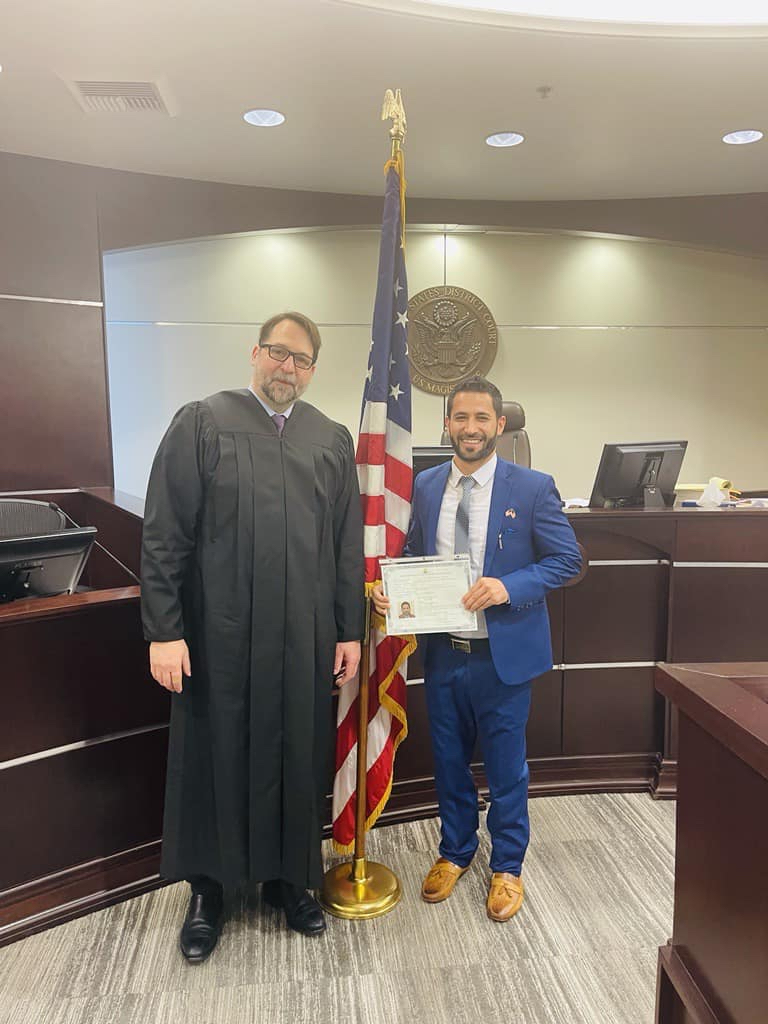The Afghan Adjustment Act: Take action for our allies
By Kimberly Curry | February 6, 2023

By Kimberly Curry | February 6, 2023
Admittedly, it is difficult to care about an issue that you haven’t had exposure to. We can feel so removed from people and places that it can be difficult to empathize with their situation, or even wrap our minds around what they’re experiencing. However, once you do, it becomes difficult not to care. There’s no going back.
Following the Taliban takeover of Afghanistan, an estimated 76,000 Afghans were forced to flee their country and brought to the United States through Operation Allies Welcome, including members of the Afghan military who supported our troops, embassy workers, interpreters, human rights defenders, women in government, and even young girls whose lives were now at risk simply for attending school.

They were in danger for supporting the United States mission in Afghanistan over the last two decades. They made their choice to help our country, and for them, there was no going back. Although, the reality is, that’s exactly what they’re at risk of, returning to a country under Taliban rule, where public floggings and executions have been instituted, women have been banned from working or seeking an education, and 90% of the country is suffering from food insecurity.
If you knew them, it would be all you could think about, their sacrifice, their suffering, their courage, their resilience, and the continued instability they face. You’d be lining up to have them as your friends and neighbors. You’d do whatever it takes to advocate for their future, but the truth is, whether you know them or not, your support is exactly what they need. Each one of us has the chance to help them, just like they helped our military, our embassy, and our intelligence agencies in Afghanistan. Luckily for us, the stakes aren’t nearly as high.
More than half of the evacuees qualify for Special Immigrant Visas, available to Afghans who directly aided the US government and now face retaliation after the US withdraw. The remainder were brought to the country on Humanitarian Parole, a temporary legal status which authorizes individuals to live and work in the United States for up to 2 years. Remaining in the US beyond that time would require an asylum application which can be an extensive and expensive process, one that is currently backlogged with tens of thousands of cases.
According to the International Rescue Committee, “Afghans in the US could lose their ability to work, find health care or reunite with family members. They could even lose their legal right to live in the country.” Since arriving in the United States, Afghan evacuees have been “working in critical sectors of the US economy and making significant contributions to US communities and culture.” However, many now fear they will have to return to a place where the Taliban is “actively torturing and killing former members of the Afghan military and citizens who supported the US war effort and former Afghan government.”
The Afghan Adjustment Act (AAA) could help solve that. Introduced as a bipartisan bill, the AAA would provide a clear and stable pathway to lawful, permanent residence for Afghans, giving them the opportunity to rebuild their lives in the United States. After passing additional security clearances on top of the background checks they’ve already received from the Department of Homeland Security, the United States Intelligence Community, and the State Department when they initially arrived at the US military bases, Afghan evacuees would no longer have to worry about the instability of their temporary status. Furthermore, the AAA is endorsed by National Security experts, refugee resettlement organizations, faith leaders, veteran’s groups, attorneys, and local communities representing a broad spectrum of political and social views. I reached out to Ambassador Ryan Crocker, former United States Ambassador to Afghanistan, who confirmed the need for this legislation and more saying, “In a word, the AAA is necessary but not sufficient” (Crocker, personal communication, January 29, 2023).
Ahmad Shah is my friend and the Immigration Coordinator for the International Rescue Committee. He says, “Afghans in the US are under extreme mental pressure from worrying about what will happen to their cases. Passing the Afghan Adjustment Act will save time, energy, and costly efforts for both the Afghan parolees and the US government” (Shah, personal communication, January 19, 2023).
After risking their lives, often in the direct service of the United States, then being forced to escape unimaginable violence, and now enduring more than a year of uncertainty as they try to start over, the best way to thank our new Afghan neighbors for their sacrifice is with the stability that the Afghan Adjustment Act would provide. This act alone is not a happy ending. Even in the best-case scenario, the life of a refugee is still fraught with loss. However, passing this legislation would be a step in the right direction to bring the kind of assurance that could allow for a pathway to healing and rebuilding their new lives in the United States without the continued fear of having everything taken away once again.
Today, as I write this paper, my Afghan friend and colleague, Merza, became a US citizen. We celebrated with cake, an American flag that he waved proudly, and stories about when he first arrived in the United States. He has accomplished so much in the 7 years that he’s been here. He’s earned a college degree, works in refugee resettlement, and he’s even saved two people’s lives, a woman who was close to drowning and a young boy who had fainted and was unresponsive. That’s the kind of person he is.

He told me today that he couldn’t sleep last night because he was so excited to get his citizenship. He said he woke up many times to check the clock to see if it was time yet. The United States is lucky to have Merza as its newest citizen. He brings a tremendous amount of talent, culture, kindness, and determination with him. His story is like so many others. They may have arrived at different times or under different circumstances, but there are others like Merza, who are waiting for the same opportunity to permanently call the US home. The AAA is the pathway to accomplish this. Now that you know a bit more about the people behind the policy, here’s what you can do.
If you’d like to take action, let your voice be heard. Go to https://act.rescue.org/3VUbHNi to email your senators today and let them know that you support the Afghan Adjustment Act and ask your friends and family members to do the same. This simple act could have a life-changing impact. While this policy is specific to the Afghan population, it’s important to recognize that there are over one hundred million forcibly displaced people in similar life threatening situations, who just happen to be coming from different countries who are excluded from this type of help due to circumstances such as proximity, capacity, immigration status, or simply bad luck. Our shared humanity reminds us that every person is equally worthy of the opportunity to be safe and free, whether they have aided the United States in a noble way, saved a life, or achieved greatness. Every individual is born deserving of these rights, and the tragedy is that where one is born often limits their ability to exercise them.
We have so much work to do, but together, our combined advocacy and aid can make a difference. In January of 2023, the US State Department launched Welcome Corps, a new program that will allow Americans to directly sponsor refugees for resettlement in the United States. This could boost refugee admissions, reduce government costs, and expand the amount of support to immeasurably enhance the amount of support newly arrived refugees receive. To learn more, go to https://welcomecorps.org/ and find out, as the website says, how to “change a life, including your own.”
 Kimberly Curry
Kimberly Curry2022-2023 Global Human Rights Hub Fellow
Kimberly is a student in the international affairs and leadership master’s program at ASU’s School of Politics and Global Studies. The focus of her research has been the systemic discrimination, human rights violations, and risk of genocide against the Hazara people in Afghanistan, the Rohingya Muslims in Myanmar, and the Uyghur population in China. Other research interests include combatting human trafficking and overcoming barriers for refugees and asylum seekers. Kimberly currently resides in Washington State and works in refugee resettlement for the International Rescue Committee.